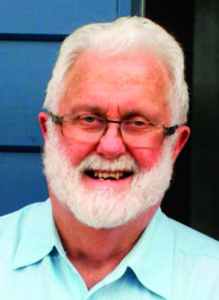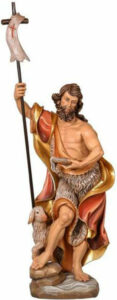The Accompanist

By Fr Kevin Bates SM
Over the years, one of life’s blessings has been the opportunity to accompany singers, choirs and other instrumentalists. My usual spot on these occasions has been sitting at a piano/keyboard or organ while others are front and centre.
As an accompanist, you are not the main focus of the audience or congregation. Your own focus, likewise, is not so much on yourself and your performance as on the people out front, the ones you are backing.
It is a most enjoyable experience working with other musicians and singers in order to create a whole musical experience together. While your own performance is important to the overall effort, you are supporting rather than starring.
As the accompanist, you need to listen carefully for cues from those leading, waiting for them, anticipating them, arriving on time with them. It is their gifts that you most want displayed, and even though you can take pleasure in your own skills, your task is to support them as their talent displays itself.
There is a certain communion created between you all, and when the music ends, there is the satisfaction of having created something of beauty and worth that has been infused with something of the heart and soul of each one of you.
Something rather sacred has happened as hearts have joined in God’s creative work. There can be a sense of awe and wonder at what you have made together, which none of you could have done individually.

St John the Baptist
Image: Sisters of Carmel
As an accompanist, there are times you have to go quietly and allow other more apt instruments and performers to carry the tune and to wait until it is right for you to rejoin the performance.
Once you have made music with others, bonds are created that will remain as precious memories that time won’t erase.
It is here that we can stop and look at the Church, which plays this role of the accompanist in so many ways.
The Church, when at its best, is not drawing attention to itself. When we as the Church are really living out our baptism, we accompany the world as we seek to create music that will enliven, heal, nourish and welcome.
As a worthy accompanist, we listen attentively to the sounds of our world, its joys and hopes, the cries of the hungry and the poor, the desperate silences of the displaced and abused. We seek to find the right time and rhythm before we begin to sound the notes needed to advance the song of their lives.
Finding the right time and rhythm can require lots of patient waiting which can be costly for those wanting to advance the music more quickly. This waiting could well involve our stepping aside and making room for the gifts of others more suited to the task.
The accompanying Church needs a humble spirit and must be able to recognise the Spirit-driven music that may come from beyond her borders. After all, she is but one part of the accompanying orchestra.
We move towards the Advent season when we encounter John the Baptist, the great accompanist of that new symphony, the Good News of Jesus. He got people interested, intrigued, concerned and even excited. Some were so concerned, as we know, that they terminated his career!
Others became interested in his passionate introduction to the new symphony and learnt it so well that they have enabled us to learn, play and love it all these years later.
One of John’s mantras, “He must increase and I must decrease,” holds up a mirror to the Church as she continues his accompanying mission. In everything we are and do, we point towards Jesus, who is the heart of the music we play.
All the gifts we bring, our energy, faith and generous purpose, find their purpose only in Jesus, as we accompany him and the world around us towards our only true home.
It’s good to chat with you,
but I must away, it’s time for practice!
 Entries(RSS)
Entries(RSS)